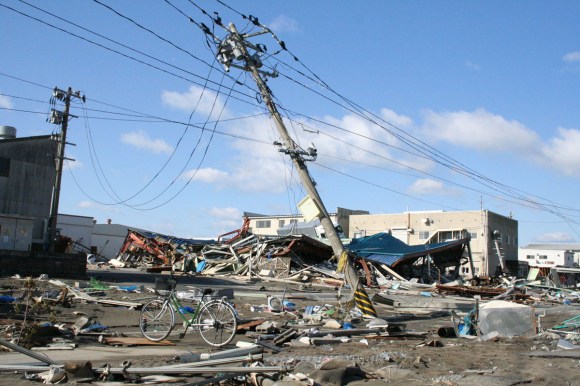
According to Japanese scientists, Japan might be in for another big one.
Dr. Masaaki Kimura, a seismologist who reportedly predicted the 2011 Tohoku Earthquake, recently appeared on Japanese TV to share his theory about the next major earthquake to strike Japan. Based on his estimates, the quake will occur by 2017 and will be of similar magnitude to 2011’s. Similarly, astronomer Yoshio Kushida continues to insist that a big quake is not too far away. Keep reading to find out more about their respective theories and which specific areas of Japan they’ve got on the radar.
For over 25 years now, legendary Japanese actor Beat Takeshi has hosted a variety show called Beat Takeshi’s TV Tackle. The show takes the form of a panel discussion in which guests are invited to share their opinions and debate about different topics, which are typically of a political nature.
On the July 21 broadcast of the show, several prominent scientists appeared to discuss their ideas regarding future seismic activity in Japan, including the possibility of another major earthquake. The end result of their discussion? The question is not so much if, but when, another major quake will occur.
Dr. Masaaki Kimura, an Emeritus Professor of submarine geology and a seismologist at the University of the Ryukyus in Okinawa Prefecture, was eager to share his thoughts regarding the matter. His predictions are based on observations of regions in Japan where there have not yet been any major earthquakes, but where smaller ones occur frequently; he calls such regions “earthquake eyes” (地震の目). He predicted the location of the 2011 Tohoku Earthquake using the same theory four years before it occurred, and although he presented his findings before the Pacific Science Congress in Japan, no one endorsed his ideas at the time.
▼Seismic activity off the coast of northern Japan on March 11, 2011
Perhaps that’s an indication that Dr. Kimura will carry more clout this time around, because by his predictions another major quake is set to hit Japan by 2017 (his actual calculation was the year 2012, plus or minus five years). Furthermore, he anticipates that its epicenter will be in the Izu Islands, a volcanic island chain stretching south from the Izu Peninsula in Shizuoka Prefecture (the islands themselves are governed by Tokyo Prefecture). As for its strength, Dr. Kimura claims it will be of similar magnitude to the 2011 quake, which puts it in the 9.0 class of the moment magnitude scale used for measuring the size of earthquakes. He adds, however, that any damage caused by the quake won’t be nearly as costly as any damage caused by a resulting tsunami.
▼The Izu Islands
To spice things up a bit, the program also invited Yoshio Kushida, a self-taught astronomer, to the show to share his opinions. Mr. Kushida has gained a sort of infamy in Japan due to his frequent predictions of an impending major earthquake, which he posits by studying seismic waves. Based on past events, we’ve got reason not to take Kushida too seriously, but you never know…
Mr. Kushida has been predicting a major earthquake in Japan’s Kansai region (to the south–Kyoto, Osaka, Hyogo, etc.); more specifically, near Lake Biwa in Shiga Prefecture. He says that abnormal FM rays have been evident since 2008, and the quake could hit on November 11 of this year, plus or minus a few days, at the earliest. In addition, it should be around a 7.8 on the magnitude scale.
But wait, there’s more! Dr. Robert Geller, Professor of Geophysics at the University of Tokyo, was also in attendance on the show. He opposed both Dr. Kimura’s and Mr. Kushida’s ideas, asserting that they should publish scientific articles and present them before an academic committee so people can verify the legitimacy of their claims. It sure sounds like the show achieved its objective of getting in some good debate action!
Regardless of whose theory will prove to be most accurate, what it all comes down to is that there is no foolproof way to predict an earthquake, not even a major one akin to the 2011Tohoku disaster. If you live in Japan, you can take precautionary measures by packing yourself a simple earthquake kit and signing up for the Earthquake Early Warning system issued by the Japan Meteorological Agency to get preemptive alerts on your mobile phone when an earthquake is detected. It’s a bit disconcerting when everyone’s phones start beeping in the same room, but believe us, better that than to be caught completely unawares when the tremor hits only seconds later.
If you can read Japanese, you might also be interested in visiting Dr. Kimura’s homepage, where you can follow his latest work.
Sources: Livedoor News via Hachima Kiko
Top image: Wikipedia – Shinjon